Safety in Mexico—Is It Safe to Travel There?

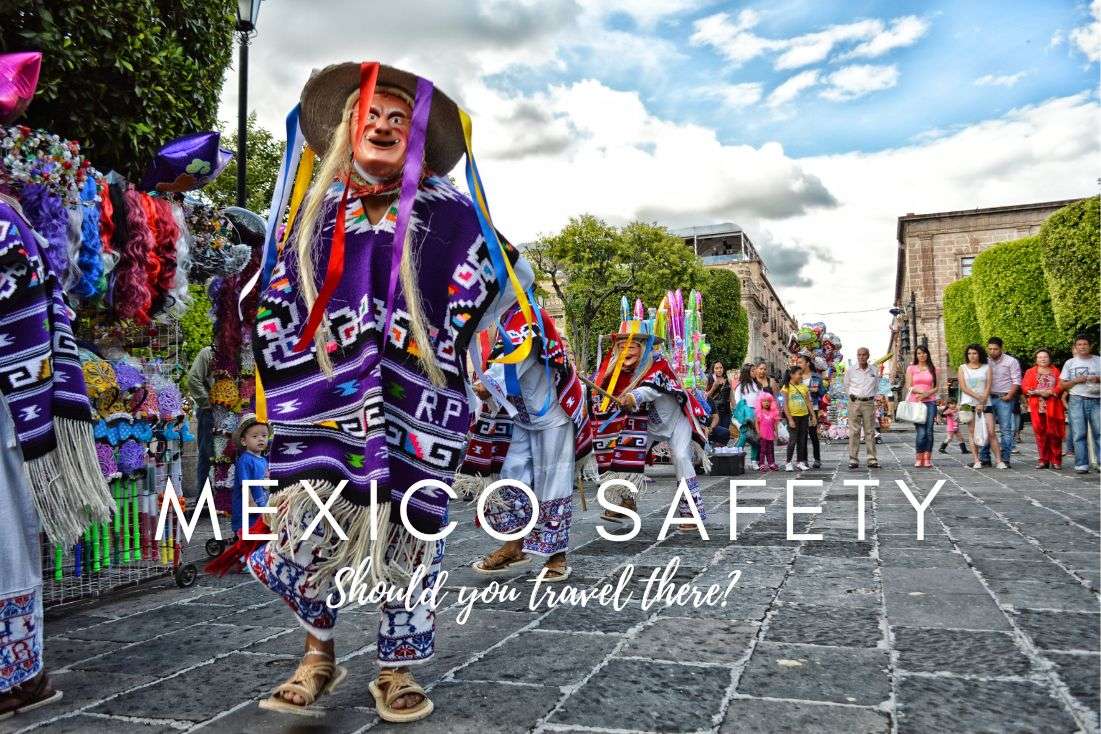
Are you planning your vacation and that pesky question, “is Mexico safe for travel?”, at the back of your mind is kind of ruining your dream of visiting this country? Before I traveled to Mexico, I felt the same way. But guess what? After spending a few weeks in Mexico, I know better than to be a worry wart. I can confidently say that worrying won't get you anywhere. The key is to arm yourself with practical information and tips that will not only make your trip more enjoyable, but also ensure your safety. Trust me, it's totally possible to have the time of your life in Mexico without constantly looking over your shoulder!
You might also be interested in reading:
- Yucatán Itinerary—2 Weeks Full of the Best Places to Visit
- Safety in Mexico—Is It Safe to Travel There?
- The Best Food in Mexico: 11 Things You Should Try + 3 You Shouldn’t
- 7 Best Aztec Ruins in Mexico
- 33 Mexico Travel Tips from Our Own Experience
1. Is Mexico safe?
Personally, I had no issues regarding my safety on our travels in Mexico. I felt safe the whole time. Even though the crime is objectively higher in Mexico than in other countries, but I didn't perceive it as much as I expected as a tourist. So, don’t bury the idea of vacation in Mexico just yet. There are a few safety risks, but if you keep them in mind, you can travel to Mexico without worries.
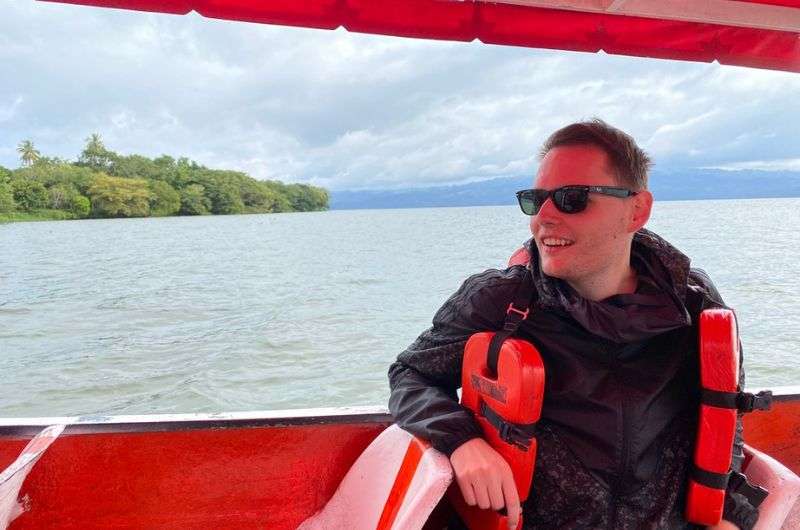
You see? This is me, travelling in Mexico, without worries.
2. What is the safety situation like in Mexico?
Now, let's talk about the elephant in the room—the drug cartels. Yes, Mexico is notorious for the escalating violence among drug cartels, but let me assure you, as a tourist, you won't be caught in the crossfire of any gang wars. And, please, don't be a Narcos expert just because you binged it on Netflix. Trust me, TV series are not always accurate.
More than gangsters, I was afraid of the local police. The police in Mexico are terribly underpaid, and they would use any opportunity to pull you over and negotiate a nice, juicy bribe. That's illegal in Mexico, of course, for the both of you, so they will try to be discreet about it.
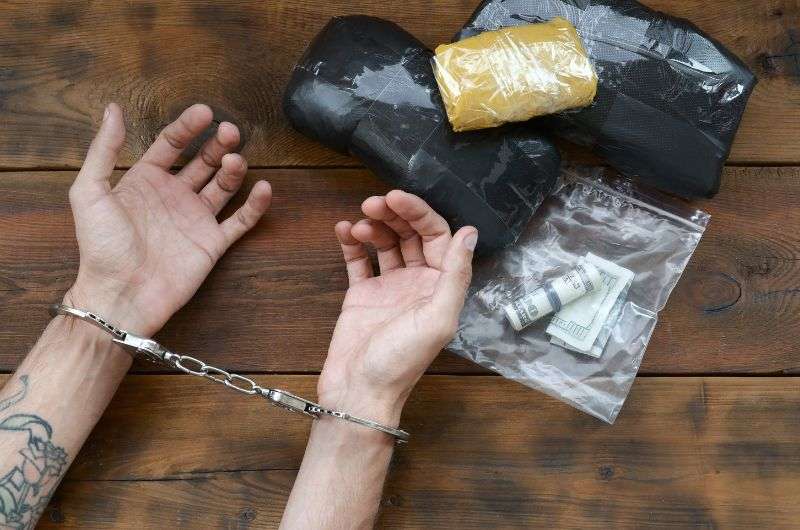
I felt very uncomfortable when this happened to me, but arguing with them could lead to worse consequences. You do you, but handing over some pesos and being on your way is one of the options. The police have the right to confiscate your car or take you into custody, and that would probably be way more uncomfortable, as you can imagine.
When we were stopped by the police, we actually did commit a “minor” offense while driving. The policeman didn’t hesitate to ask us for a bribe. Normally, they want something around 100 or 200 pesos. But our officer aimed higher and wanted at least 500 pesos, likeable fella! Do I have “rich biatch” written on my forehead or something? Although I definitely don't want to promote any illegal activity or encourage bribery, in the moment, it did seem easier and quicker to just hand over the cash than to argue with him.
3. Current crime stats
It really depends on where you are in Mexico. Some locations are more dangerous than others. But if you avoid shady places, book a verified accommodation and won't get involved in any illegal activity yourself—like purchasing drugs—you should be okay. Some areas in Mexico are even safer than the United States as the crime rates show.
However, the mainstream media portray Mexico as a place where you will be kidnapped the minute you step on Mexican soil. I don’t want to look like an old man yelling at clouds, but don’t trust everything you hear on TV or read on Facebook (unless you read it on Next Level of Travel, obviously). The fact that your dearest auntie shared an iffy post doesn’t necessarily mean it's true, okay?
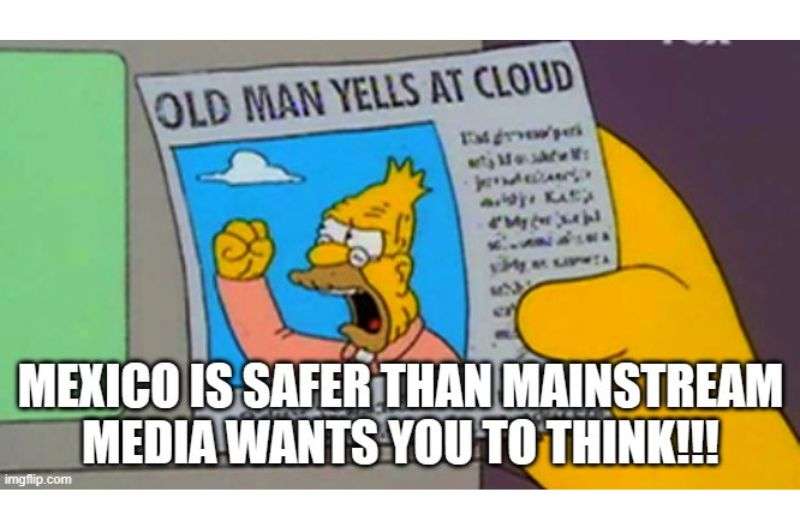
Criminality has tended to slightly decline over the past few years according to the latest studies. The crime rate was recorded at 28.37 per 100,000 inhabitants. (For example, if we compare the rate of violent crime in Mexico to Texas, it is two times higher in the federal state of US.) But we have to keep in mind that this comes after a rapidly increasing crime rate in 2014–2018. The crimes tourists come across are mainly petty crimes such as pickpocketing or other forms of theft.
4. The safest and most dangerous regions
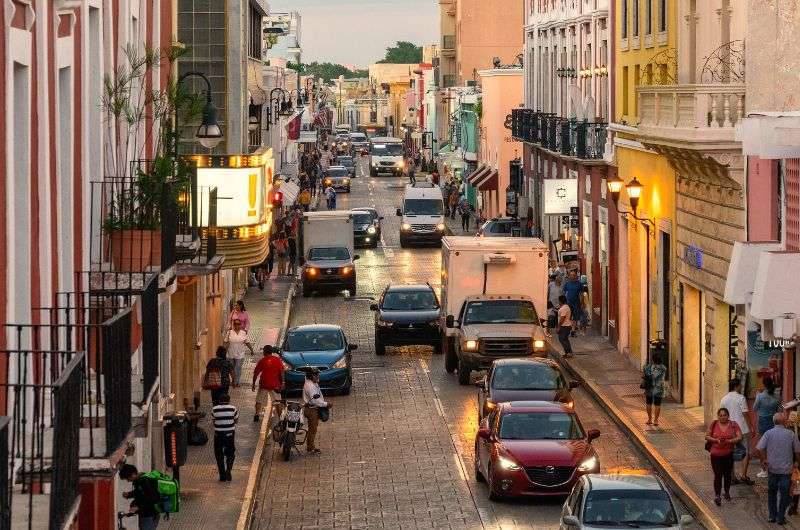
The streets of Mexico
As in all the other countries in the world, some places are more dangerous than others. It is recommended to avoid certain areas while traveling, but they are mostly not tourist destinations. Before you travel, do your own research based on the locations in your Mexico Itinerary. If you’re headed for a dream vacation in Tijuana or Sinaloa state, you may want to reconsider.
The crime rate in Mexico City is relatively high, but don't let that scare you off. Stay mostly in tourist areas, don’t walk alone at night, don’t do anything illegal, you know the drill. I felt more in danger in Veracruz than Mexico City.
Generally speaking, the northern border region is the most dangerous area in Mexico.
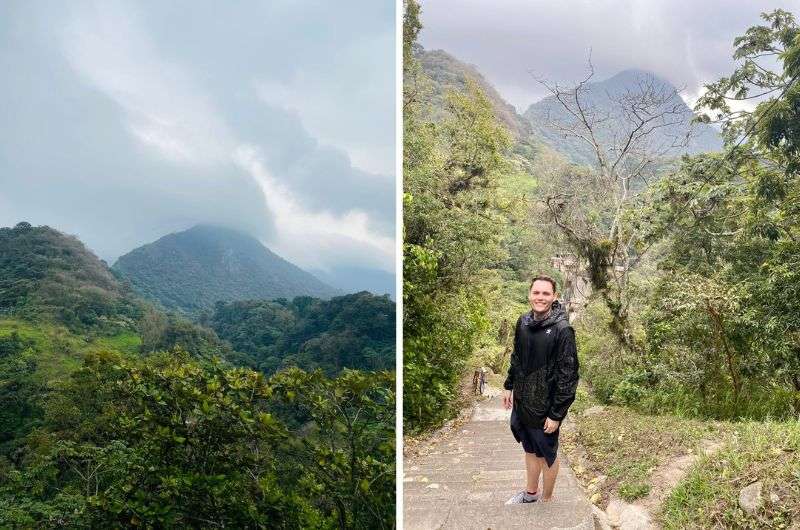
500 Escalones in Veracruz, Mexico
Nevertheless, I recommend not to be afraid of Veracruz state either, because it is a place worth seeing—on this picture I was hiking the trail of 500 Escalones
On the other hand, the safest place in Mexico is Yucatán state and Chiapas, from my own experience and feelings.
5. Eating in Mexico
Concerning food and eating in Mexico, I have tips from my own experience, unfortunately! You've probably heard that when travelling to tropical countries, it’s not recommended to drink tap water. That’s if you want to spend your vacation at the beach and not the toilet. I wouldn’t even brush my teeth with it, always use bottled water.
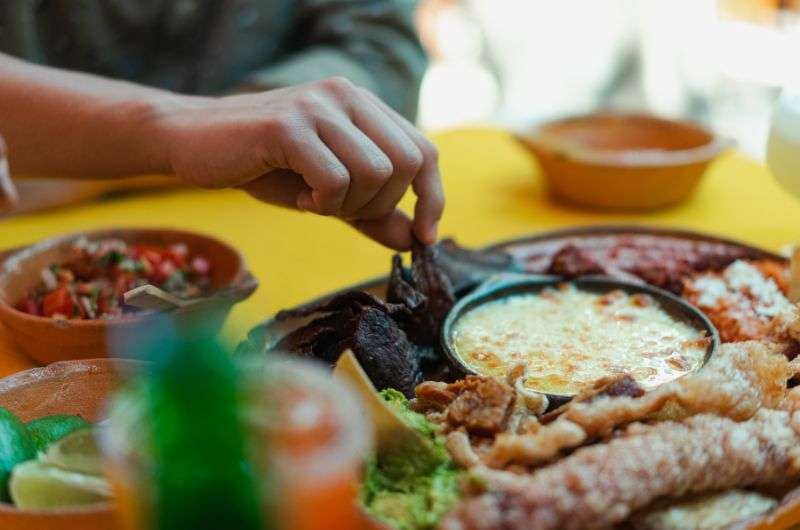
Be careful with the food in Mexico!
The unpleasant experience I had took place on New Year's Eve—I went out with a bang, that’s for sure! I decided to live it up with some local cuisine at a restaurant that—in hindsight—looked a little suspicious. What was I thinking?! Never eat at weird-looking places, ever. As it gets really hot in Mexico, they can have issues with the proper storage of meat and eggs. That was the snag.
I got food poisoning from a spoiled egg and threw up the whole flight the next day. And as it was the first of January, I couldn’t even count the side eyes I got because I looked violently hungover. I wish! That would be probably way more pleasant than the torture I went through.
6. The most common scams in Mexico
Mexicans are pretty imaginative type of guys and gals, and they have formed some of their scams to absolute perfection. Sometimes you have no idea that you are being ripped off until it's too late. Here are some common scams you probably would face on your holiday in Mexico.
Fake ATM
When you are withdrawing money in Mexico, stay super cautious. You can stumble upon fake ATMs. This special kind of ATM is designed to steal your card info or even swallow it, and you sure don’t want this to ruin your vacation. Therefore, use only ATMs of trusted official banks and not the first shady-looking one you meet.
Taxi scam
Taxi scams are actually not that prevalent, but when they do happen it's far from pleasant. Generally, the taxi driver tries to charge you way more than he should, because he noticed you're not local. Make sure you roughly know what you should be paying for the ride and agree on cost with the driver before he starts driving.
Something more soap opera-ish is called “express kidnapping”. A fake taxi driver holds you hostage in the vehicle and will set you free only once you hand over what he is asking for—usually money or jewelry.
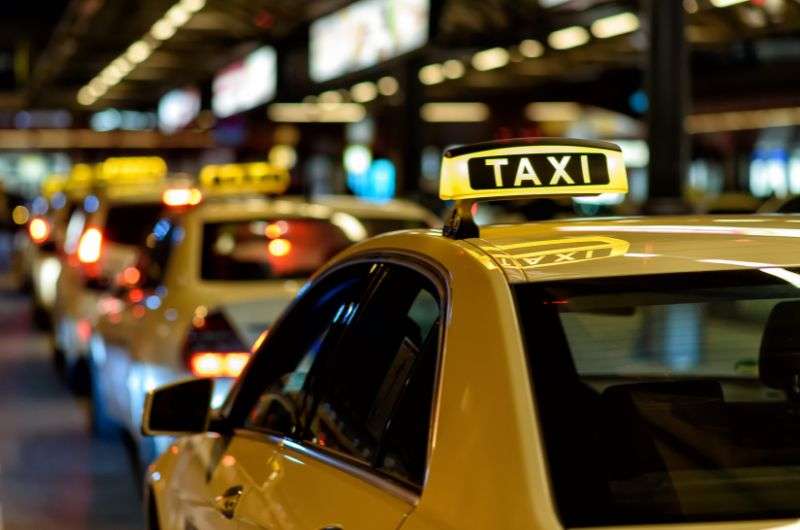
Watch out for “express kidnapping”!
This can also sometimes happen near ATMs, so again, only use those that aren’t down a dark alley and if there’s a dude lurking around, maybe go elsewhere. This doesn’t happen very often though.
Restaurant scams
On the other hand, being scammed in a restaurant is way more common for tourists in Mexico. It's not an elaborate scheme, the waiter just overcharges you for an item on your bill or gives you incorrect change. If you keep an eye on the prices and what you are actually charged, you should be alright. This type of thing happens even in Europe, so I wouldn’t consider it a Mexican specialty.
A bird pooped on you!
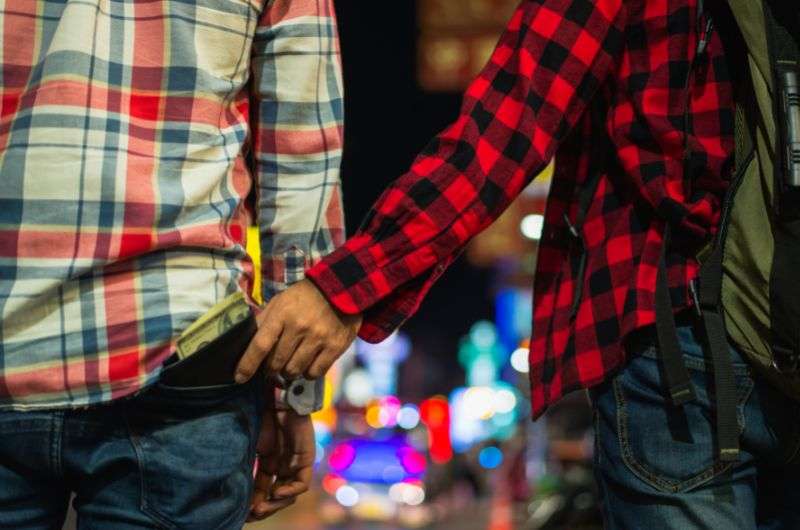
Watch out for “express kidnapping”!
This one is much funnier. But it's only a variation on mustard or other goo scam. Someone will very sneakily hit you with something reminding of bird poop or any other suspicious substance. A kind and generous passerby will immediately start to help you clean up the mess. What a nice guy (or gal, women can commit crimes too, I'm a feminist)! But at that moment, you are being robbed by him or his (or her) handy colleague of your pocket content or other belongings. So, if it feels like there’s no birds in sight, just trust your gut.
7. Renting a car and driving in Mexico
You don't have to be scared of driving in Mexico at all, it's basically child's play. Well, almost.
You need to be at least 25 years old to rent a car in most rentals. And some even have a maximum age requirement, usually 75 years. Another thing you need to know about driving in Mexico is, for example, that it's safer to drive in daylight. Try to avoid driving at night, sometimes the other vehicles don’t even bother to use headlights! Your night drive to your hotel can turn out to be an episode of Survivor!
But in general, Mexicans drive responsibly. When I compare it with driving in Italy, where Italians turn into absolute monsters once they step in a car, I felt super safe on Mexican highways. The roads are also in very good condition.

When driving in Mexico, you might get into zona de niebla (the zone of mist).
When you rent a car in Mexico, I recommend doing so in the local and verified car rentals and on the spot. Shady rentals will try to cheat sometimes when you book a car in advance. You can get a worse model than you pay for or have to listen to the lie that they ran out of the car class you paid for (such a yawn scam!). Also, pay in cash! I'm not saying they will necessarily steal your card info in the rental, but they will at least overcharge you.
Tip: You may feel like it’s better to go for the international car rental chains to be on the safe side, but they’re just franchises without the trustworthiness of the parent company. Go local with good reviews.
What about other means of transport? Public transport is safe in general, just keep an eye on your belongings and at night use a taxi rather than a bus. With the taxi driver you can feel safe or use Cabify to be sure you didn’t fall for any tourist trap.
8. Before you go: Insurance and vaccines
The first and most important thing you should do before you go to Mexico, is to take out good travel insurance. It's not mandatory to have while you travel there, but better safe than sorry! The cost of insurance depends on the details and specific conditions of your vacation in Mexico.
On the other hand, if something happens to you, you could pay way more than the cost of insurance.
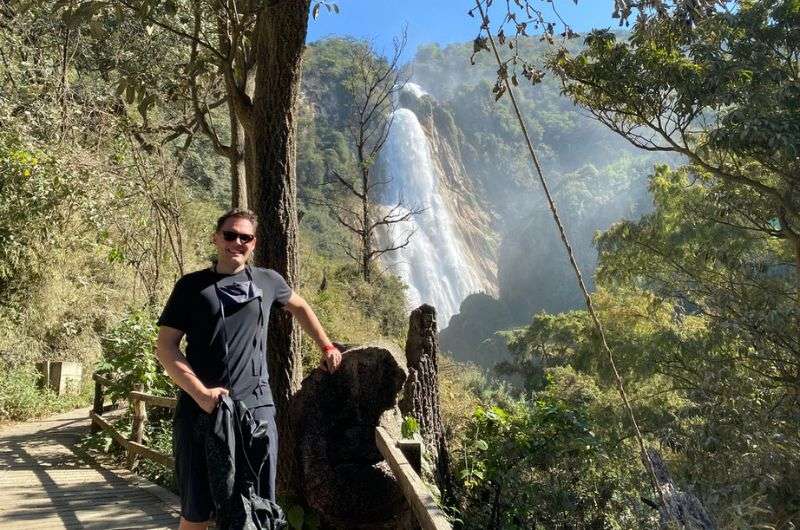
Get your insurance and vaccination and travel carefree—this is yours truly at El Chiflón Waterfalls
When traveling to Mexico, vaccines are necessary. As soon as you decide to travel to Mexico, check out what vaccinations are currently recommended to get before traveling to that area specifically. And I don’t mean only COVID-19 vaccines, but also Hepatitis A, that is endemic in Mexico. Other vaccines depend on the area you’re traveling to, your doctor will help you with that.
Because our travel plan included more tropical areas such as Chiapas, we got the typhoid fever shot as well.
9. Hotels in Mexico
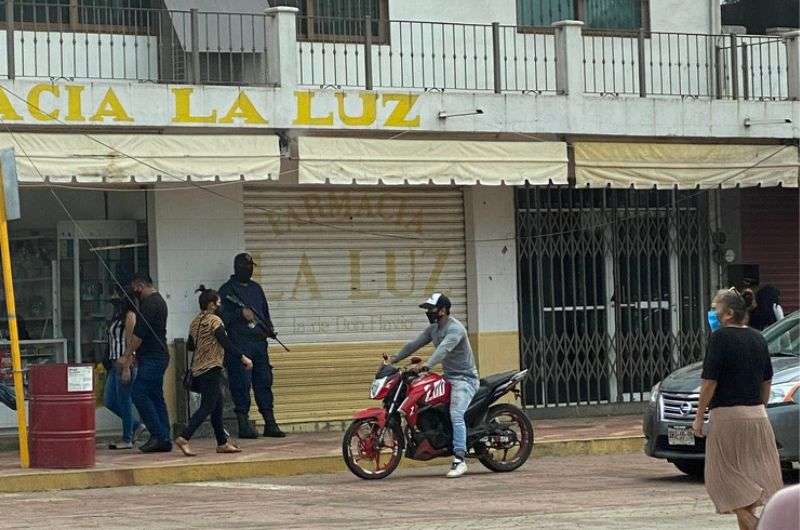
Choosing hotels carefully is my speciality
Another tip for safe travel is regarding accommodation. If you want to feel safe, book rooms only in verified places on booking.com or look for international hotel brands like Hilton or Marriott. The hotels we stayed in felt safe, clean, and the staff was incredibly friendly. I can recommend Downtown in Mexico City, Hotel Hilton Garden Inn Tuxtla Gutierrez or Hotel Bardo in Tulum.
The best place to stay in Mexico City is Downtown
10. Weather in Mexico
There are multiple types of climates in Mexico, depending on the area. It's one of the 17 countries classified as the most biodiverse, literally called a “megadiverse country”. The different types of climates in Mexico are temperate, tropical (rainforest, monsoon, savannah), and arid (desert, steppe). What does that mean for you? That you will need to pack both a swimsuit and a winter jacket—it snows in about a third of the states in Mexico!
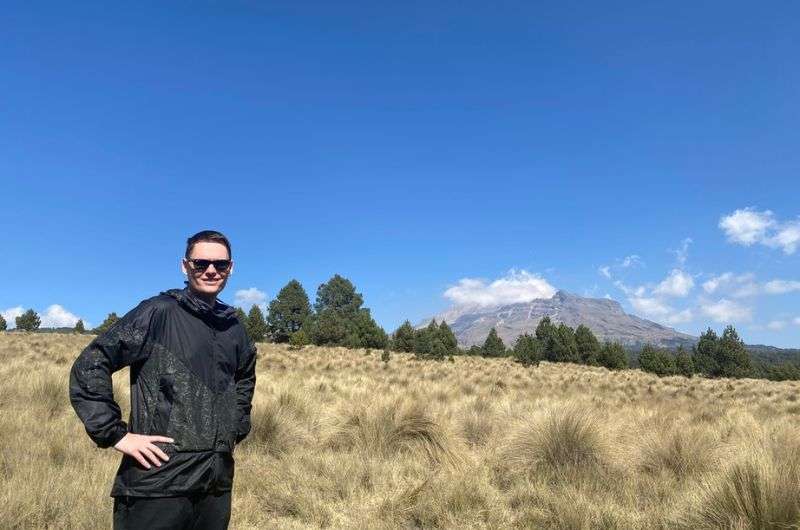
I remember this day like it was yesterday—it was the day my face was as red as a tomato. Friendly reminder—sunscreen!
What’s the temperature in Mexico then? That’s not an easy question to answer, as both longitude and altitude play an important role. Generally, the further south you travel, the warmer it is, and with higher altitudes, it gets colder. But if you don’t want to get sunburned, wear sunscreen even if it’s cold or cloudy. Because of the high altitude, you can get sunburnt anyways.
Hurricane season
The hurricane season affects both coasts of Mexico. It usually lasts from June to November and is linked to hurricanes, tropical storms, and tropical depressions. On average, 12 storms occur in the Atlantic during this period, but the number can vary greatly. For example, in 2020, there were 26 storms, out of which 9 were hurricanes.
Earthquakes
You can also experience earthquakes in Mexico. Small earthquakes are pretty common there. You don’t need to worry, usually you won’t even notice them.
But if the earthquake is bigger, make sure there are no dangers to you around. If you’re inside, don’t stay anywhere where items could fall on you. That armchair next to a bookshelf is not a good hiding spot. Take cover under a desk or table. If you’re outside, stay away from trees and power lines.
11. What to do in case of emergency in Mexico?
If something happens to you, call 911. It's Mexico's national emergency number and it is free. You'll get the fastest response there and the operator will help you or guide you where you can get help with your particular issue.
You should also jot down the phone number of the closest embassy or consulate of your country.
If something happens on the road, call Green Angles at 078. Ángeles Verdes is a roadside assistance service with English speaking operators.
This post contains affiliate links. I earn a small commission if you make bookings through my links, at no additional cost to you. This helps keep this blog free, thank you!


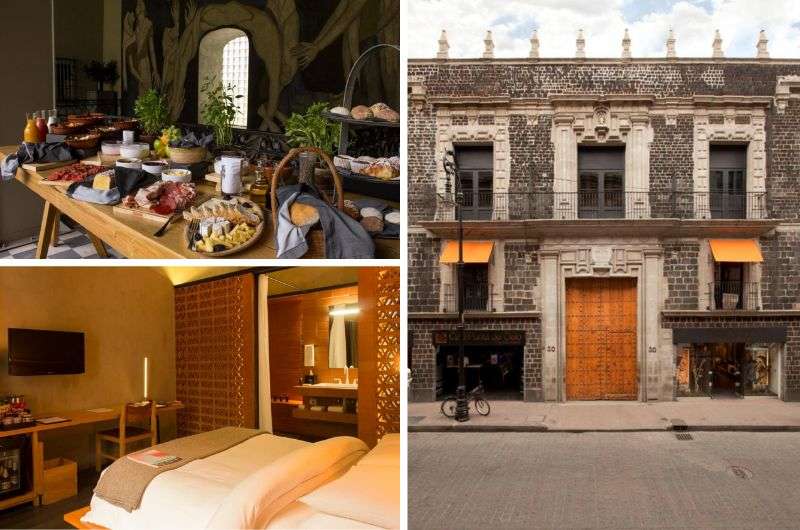
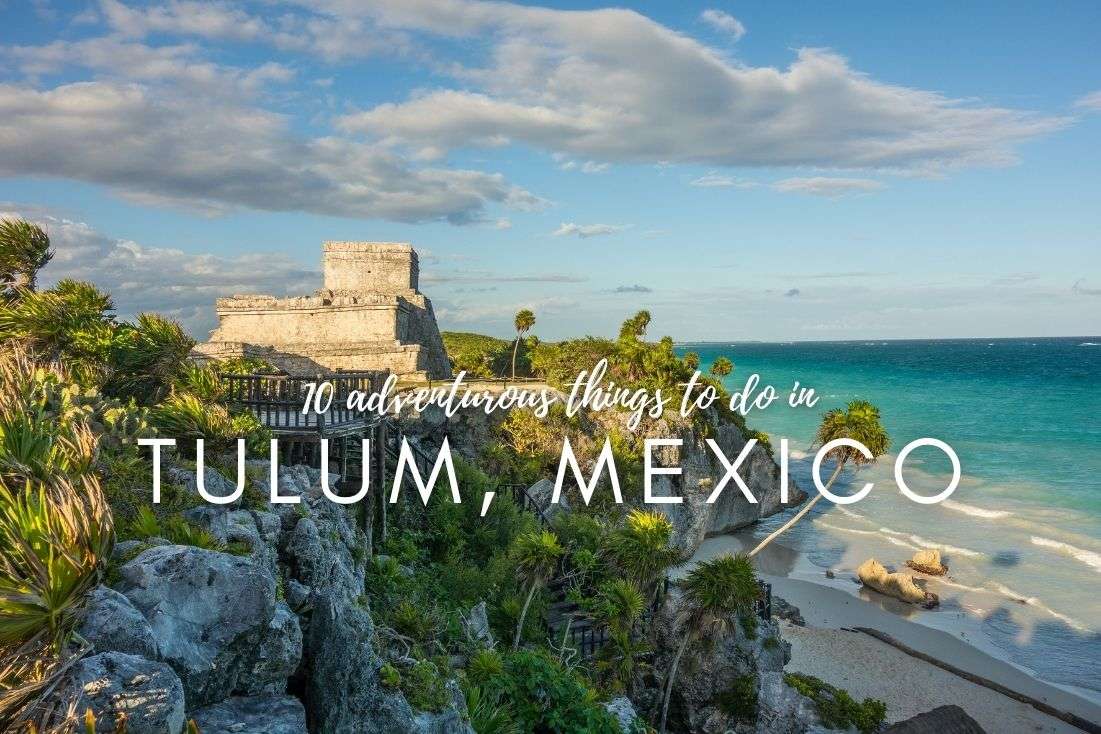
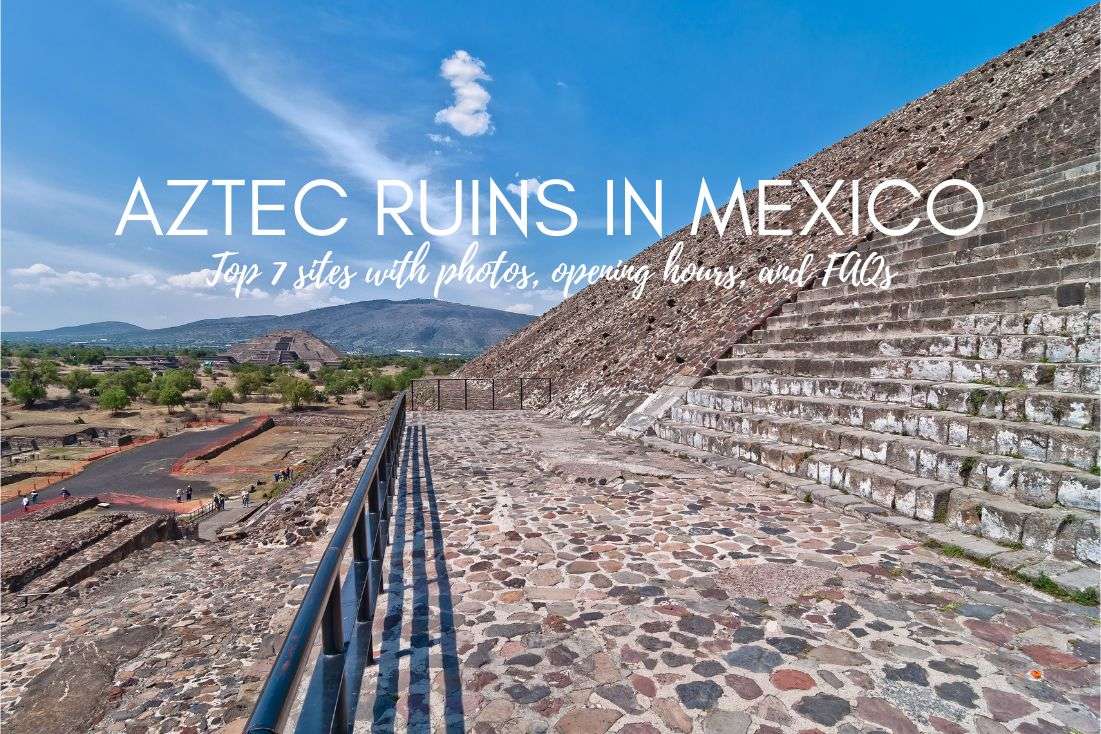






Comments | Thoughts? Give us a shout!